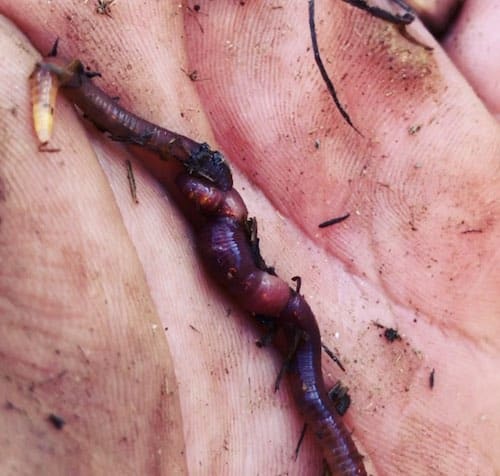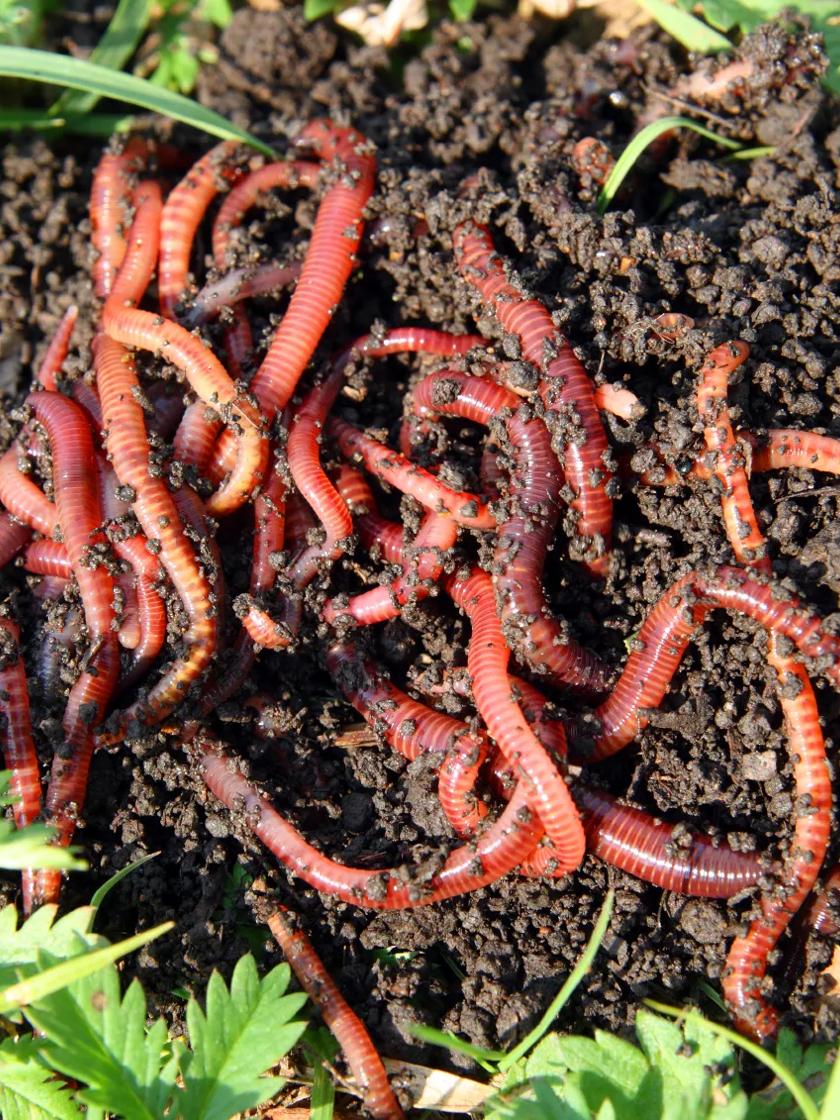Red Wiggler Worms Demystified: Unlocking the Keys of Vermiculture for Greener Living and Nutrient-Rich Dirt
In the world of lasting techniques for improving soil top quality and promoting eco-conscious living, red wiggler worms play an essential yet usually ignored role. Red Wiggler Worms. Comprehending the intricacies of caring for these worms, enhancing their setting, and utilizing their castings can lead to a greener way of living and much healthier soil for plants to grow.
The Function of Red Wiggler Worms
Red Wiggler worms play a crucial function in composting systems by effectively breaking down natural matter into nutrient-rich spreadings. These voracious eaters eat a range of organic materials, such as kitchen area scraps, lawn waste, and paper products. As they feed, the worms' gastrointestinal processes damage down the raw material into a penalty, dark, and nutrient-dense material called worm spreadings or vermicompost.
The castings generated by Red Wiggler worms are highly helpful for dirt health and wellness and plant development. They are rich in vital nutrients like potassium, phosphorus, and nitrogen, which are crucial for supporting healthy and balanced plant development. Furthermore, worm spreadings have helpful germs and enzymes that help improve soil structure, increase water retention, and boost nutrient uptake by plants.
Benefits of Vermicomposting

It improves dirt framework, boosts soil oygenation, and raises dirt wetness retention. Vermicompost likewise improves the dirt with important nutrients like phosphorus, potassium, and nitrogen, advertising plant development and total soil fertility.
Additionally, vermicomposting supports lasting horticulture practices by offering a natural and chemical-free alternative to synthetic fertilizers. Red Wiggler Worms. This eco-friendly technique not just enriches the soil yet also helps in reducing dependence on damaging chemicals, advertising a greener and much more lasting means of gardening
Establishing a Worm Bin
When developing a worm bin for vermicomposting, correct configuration is vital to ensure the success of the composting process. The first step in setting up a worm container is selecting an appropriate container.
After adding the bed linen, introduce the red wiggler worms to the container. The worms need to then be supplied with food scraps such as fruit and vegetable peels, coffee premises, and eggshells.
Regularly monitor the moisture levels and temperature in the worm bin to ensure ideal problems for the worms. With proper arrangement and upkeep, the worm bin will effectively convert organic waste into nutrient-rich garden compost for your plants and garden.
Harvesting Worm Spreadings
To effectively gather nutrient-rich worm castings from your vermicomposting system, a methodical harvesting method is necessary. When it comes time to harvest the worm spreadings, there are a few crucial actions to follow to guarantee a successful procedure.

Troubleshooting Common Issues
Identifying and dealing with common obstacles that might emerge during the vermicomposting process is important for preserving a healthy and balanced and effective worm container. Adding excess food scraps can lead to a buildup of wetness and acidity in the worm container, possibly hurting the our website worms. One more problem is undesirable odors rising from the worm bin.
Furthermore, if the worm populace is decreasing or the worms show up unhealthy, maybe as a result of ecological stressors such as severe temperatures or pH degrees. Checking these aspects and making needed changes is crucial for the health of the worms. By repairing these common problems promptly, vermicomposters can ensure a smooth and successful vermicomposting procedure while maintaining a thriving worm populace.

Conclusion
Finally, red wiggler worms play a crucial role in vermiculture by damaging down organic matter into nutrient-rich soil. The advantages of vermiculture consist of greener living and improved soil top quality. Establishing a worm container is essential for effective vermiculture, and harvesting worm spreadings supplies important compost for horticulture. By understanding and repairing common issues, individuals can unlock the tricks of vermiculture for sustainable living and much healthier soil.
As they feed, the worms' digestive system her explanation procedures damage down the natural issue into a fine, dark, and nutrient-dense product known as worm castings or vermicompost.
The castings generated by Red Wiggler worms are very useful for soil health and plant development. Including excess food scraps can lead to a buildup of moisture and acidity in the worm bin, possibly damaging the worms.Furthermore, if the worm population is decreasing or the worms show up unhealthy, it might be due to environmental stress factors such as severe temperatures or pH levels. Setting up a worm container is necessary for successful vermiculture, and collecting worm castings provides useful compost for horticulture.
 Rider Strong Then & Now!
Rider Strong Then & Now! Michael Bower Then & Now!
Michael Bower Then & Now! Charlie Korsmo Then & Now!
Charlie Korsmo Then & Now! Jenna Von Oy Then & Now!
Jenna Von Oy Then & Now! Nancy Kerrigan Then & Now!
Nancy Kerrigan Then & Now!